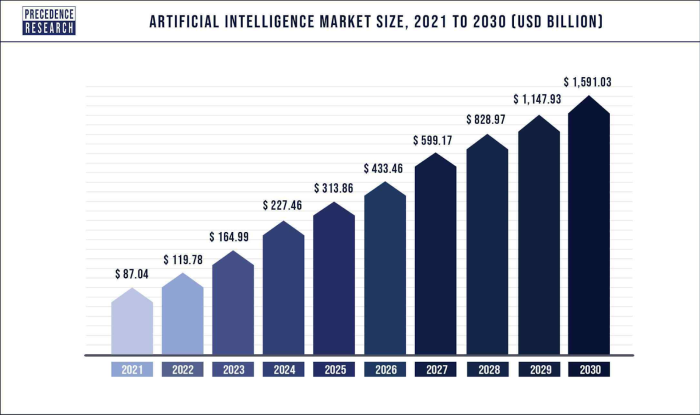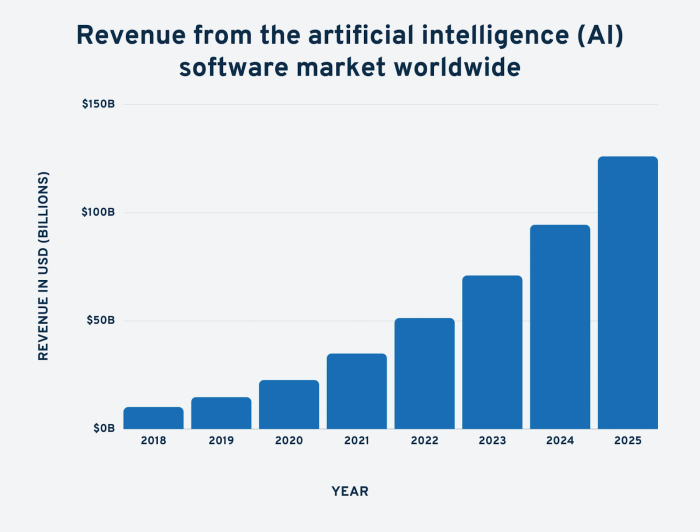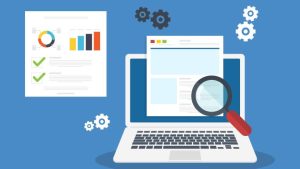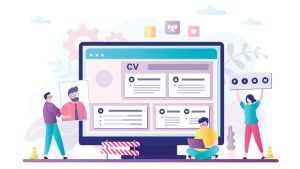10 AI Skills To Include On Your Resume
 Publié le 26 April 2023
Publié le 26 April 2023
Demonstrate your willingness and ability to work with the latest technology with 10 AI skills to include on your resume.
While many people think of AI in terms of science fiction films, the reality is that it’s becoming a bigger part of our lives with every passing day. The technology is seeing increasing adoption in everything from marketing and recruitment to finance and healthcare, and it will only continue to develop and improve over the coming years.
For those working in the tech sector, this presents both a challenge and an opportunity. Do you have existing skills that mean you’re well-placed for the AI revolution? Or are you looking to acquire new ones to augment the skills you have?
Knowing the artificial intelligence concepts and keywords you should include on your resume can make a real difference when it comes to applying for jobs in the tech industry and beyond.
Here are the 10 AI skills to include on your resume.
Hard skills

Image sourced from precedenceresearch.com
AI is now used in multiple settings, for everything from improving the efficiency of legally binding electronic signature software to financial sector cybersecurity.
Of course, the 10 AI skills you should include on your resume will vary greatly depending on your role. That said, most of the artificial intelligence capabilities on this list will give you a major leg up no matter what AI-related career path you’re aiming for.
1. Programming
While there are a lot of AI systems that require only low levels of coding, most organizations are looking for people who can either build a dedicated system or customize existing ones. That means you should have fairly extensive programming skills or be prepared to learn them.
Popular programming languages that you might need include:
- Python. As well as being one of the most popular programming languages generally, Python is widely used in the world of AI and can be utilized for deep learning and neural networks.
- Java. Java is another language that’s often found in AI. It can be used in procedural and intelligence programming (both of which are used to guide AI systems).
- C++. Another commonly used language in the AI world is C++. This is often used to develop more advanced AI elements, such as neural net functions.
2. Machine learning algorithms
When it comes to AI skills to include on your resume, this is one of the most essential. Machine learning algorithms are used to take relevant data and transform it into models.
People working with AI also use ML algorithms to solve issues with regression and classification. Being able to use ML algorithms to create accurate data models is key to allow organizations and companies to continue collecting data and use it effectively for both short and long-term planning.
3. Data engineering
There are many roles associated with AI. If your career vision is more about using artificial intelligence than developing or building systems, you need data engineering on your CV.
Organizations use AI in their analytics and data science to make forecasting and predictions more accurate. Having credentials that attest to these skills will demonstrate to recruiters and hiring managers that you possess the highly specific knowledge needed to effectively organize important data flows.
4. Big data analysis
If you want to work with AI systems that make predictions, you’ll likely need to use machine learning to manage and analyze massive amounts of data.
The volume of this is likely to grow continuously, so you need to be able to scale your systems to cope with this scale. As companies become more data-driven, understanding how to organize and analyze relevant data will be a vital skill across multiple industries.
5. Neural networks and deep learning
Neural networks are designed to mimic human brains and teach computers to process data in a way that’s not dissimilar to how we think. While this is one AI skill that you may not use in your job, it can help you understand how AI systems work.
Neural networks can also assist with developing deep learning algorithms, making them very useful to know. It will help you understand the future trends that AI is likely to follow in the workplace and how it will affect businesses of all types.
6. Data visualization
You’ll often find that AI combines with machine learning to solve problems involving huge datasets. The answers to these need to be visualized so that non-tech people can understand them.
Being able to transform data-based information into easily understandable charts and graphs is one of the AI skills that’s most often required by businesses. Not everyone will be able to understand multiple programming languages, so being able to break down data into understandable components that can be effectively communicated will only help boost an organization.
Soft skills

Image sourced from statusbrew.com
People often think that the only AI capabilities they’ll need are hard ones, but to be successful in this sort of career, there are also several soft skills that potential employers will look for from prospective employees.
7. An eye for detail
AI systems can be incredibly complex, and while you’ll be working with a lot of automated systems, you’ll also be handling large amounts of data.
Having an eye for detail and the ability to spot potential anomalies and errors is one of the most important soft skills you can bring to the table in terms of optimizing the systems you work with. It can help you spot new trends before they fully emerge, and identify problems with existing models and business plans.
8. Critical thinking
On that note, being able to spot errors or inconsistencies in the processes and systems you’re working with is vital. Critical thinkers are especially good at this and won’t just accept things at face value.
This can be as simple as asking yourself if the system you’re working on is as efficient as it could be. It means you might also be able to help with issues that go beyond AI if you’re put in charge of a more far-reaching, less-specialist team or project.
9. Coping with pressure
Working with AI systems is no walk in the park. There’ll be times when you’re under immense pressure to deliver results within tight timeframes. Being able to demonstrate that you can deal with this, organize your time and still work efficiently is something many employers will look for from job candidates.
They’ll also want to see that you can use and adapt to unfamiliar tools and systems, to effectively carry out your work.
10. Teamwork
It’s rare that you’ll be working alone on AI-facing tasks. Most projects will see you collaborating with other members of staff, so cooperation and teamwork are crucial to success. This means supporting your colleagues, being a leading voice on projects, and listening to their unique ideas and perspectives.
Being able to show you’re a team player with strong communication skills is something that will look good on your CV, especially if you focus on your strongest skills in your resume headline.
The Takeaway
If you want to progress along your chosen career path, it’s essential to sharpen your skills and acquire some new ones. Being able to demonstrate appropriate hard and soft skills to potential employers improves your chances of landing your dream job and making a success of your chosen career.
You may not have every skill listed here, but it can help to know which of your capabilities need refreshing as well as what ones you may need to acquire moving forward. As uptake in AI continues, having the requisite skills means your career should be perfectly on track for progression. Knowing 10 AI skills to include on your resume will help a hiring manager see that you’re committed to using the latest technical innovations to move a company forwards.







